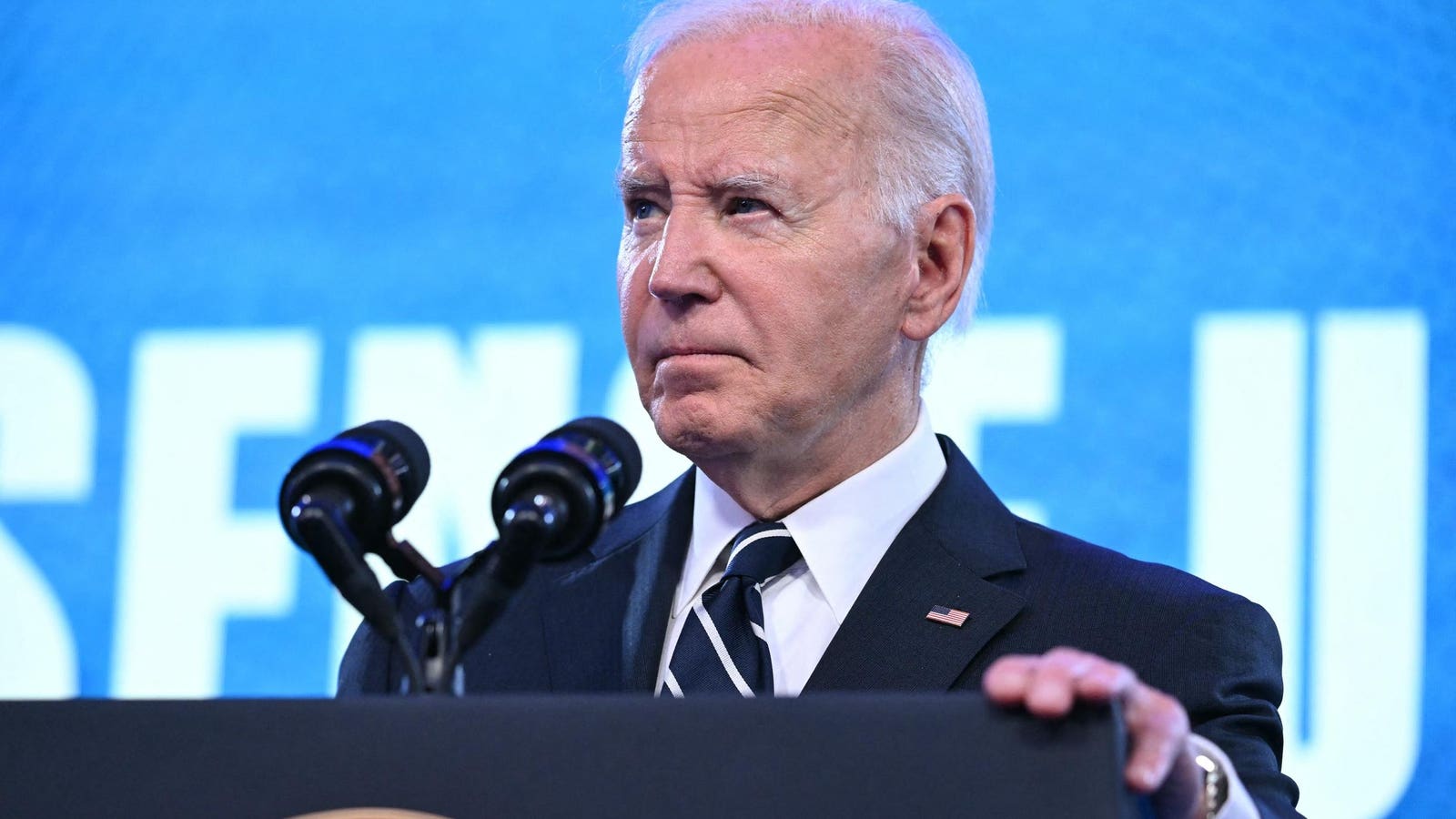US President Joe Biden speaks at the Washington Hilton in Washington, DC on June 11, 2024. … [+]
Millions of borrowers were notified this week that they will not have to make a student loan payment in July. The Biden administration has directed loan servicers to place many borrowers enrolled in the Affordable Education Savings plan into a special type of forbearance pending recalculation and reduced payments. SAVE is a new income-driven repayment plan that often has lower payments and gives borrowers a path to student loan forgiveness.
“We look forward to offering millions of borrowers lower monthly payments as part of the Biden-Harris Administration’s work to deliver the most affordable student loan repayment plan ever,” a Department of Education spokesperson said in an email to on Wednesday.
Here’s what borrowers need to know.
Faster student loan forgiveness and lower payments under Biden’s SAVE plan
President Joe Biden debuted the SAVE plan last fall. Officials have described the plan as the most affordable and beneficial income-driven repayment plan. The program features lower monthly payments, an interest subsidy that will eliminate any future balance increases for borrowers who are underwater in their payments relative to the interest accrual, and accelerated student loan forgiveness for those who have taken out amounts of small debt.
But the SAVE plan is about to get even better for borrowers. Beginning July 1, a new repayment formula for the plan will go into effect. This update will cut monthly payments for college borrowers in half as the plan’s discretionary income formula is reduced from 10% to 5%. Borrowers who have graduate school loans will also see a reduction in their payments if they also have undergraduate loans; the amount of the reduction will depend on the percentage of their graduate and undergraduate student loan debt.
Student loan payments are suspended for July as the new formula takes effect
More than eight million borrowers are enrolled in SAVE, according to the Department of Education, and many of those borrowers will have their payments recalculated under the new formula that takes effect next month. In anticipation of that, and in an effort to avoid some of the repayment chaos that plagued the student loan system when the Covid-19 payment freeze ended last fall, the Department of Education has instructed loan servicers to put borrowers affected in an administrative forbearance for the month of July, canceling any payment that would otherwise be due.
Borrowers began receiving notices this week that their servicer “has placed an administration resolution on your account” from July 1 to July 31. The Department of Education confirmed that the restrictions are being implemented at the direction of the Federal Student Aid Office.
“While the Department finalizes preparations with student loan providers to implement the new, lower borrower monthly payments capped at 5% for student loans under the SAVE plan, some borrowers may be placed on a short processing wait to ensure they can access the full benefits of the SAVE plan and that their new payment amounts are accurate,” the department’s spokesperson said. During the stay, “no payment is required” and borrowers’ interest rates will be set temporarily at 0%.
Sustainability will count toward student loan forgiveness under PSLF and IDR
Under the new regulations, mandatory processing waivers can now count toward student loan forgiveness for IDR plans as well as public service loan forgiveness. This is a significant departure from past practice, when these types of forgeries would not be counted and borrowers could face significant obstacles in making progress toward eventual loan forgiveness.
The Department of Education spokesperson confirmed that the July administrative forbearance will count toward student loan forgiveness for the IDR and PSLF plans.
SAVE student loan forgiveness and repayment benefits face legal challenges
As the Biden administration works to implement student loan payment reductions under SAVE, the plan is facing two serious legal challenges brought by a coalition of more than a dozen states led by Republicans. States are seeking to block the program, arguing that President Biden has exceeded his authority in creating such a generous IDR plan.
Last week, a federal judge in Kansas gave the Biden administration a partial victory in one of the challenges when he dismissed the lawsuit against eight of the 11 states. But the court allowed the lawsuit to continue for the three remaining states involved in that legal challenge.
Meanwhile, a decision is expected any day now from a Missouri judge overseeing the second legal challenge. The court held a hearing on the states’ request for a preliminary injunction earlier this month. If granted, the order would block SAVE for new enrollees while the litigation continues; it is unclear whether borrowers currently enrolled in SAVE will be able to reduce their payments in July, as the administration intends. A decision is expected every day.
